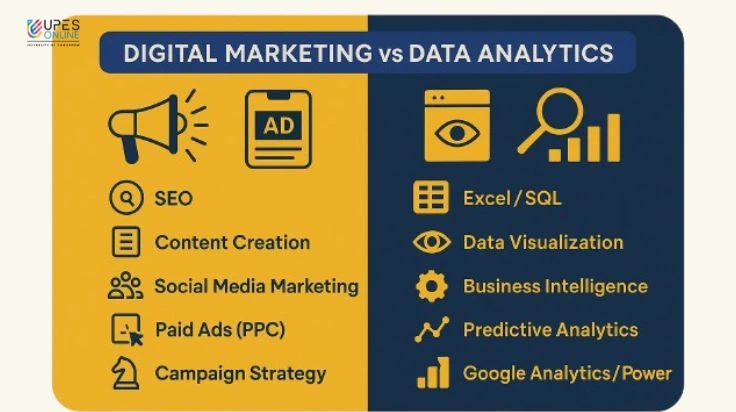Oil and Gas Project Management: Planning & Execution

Table of Contents
- What is the role of Project Management in Oil and Gas industry?
- Importance of Project Management in the Industry
- Roles & Responsibilities
- Project Phases
- Project Life Cycles
- Conclusion
Maintaining lucrative and efficient operations in the oil and gas industry requires excellent project management. It requires a lot of planning and works to meet shifting market demands because of the sector’s complexity and the large-scale undertakings it entails.
Managing costs, schedules, risks, and stakeholders and ensuring that projects are completed on time and within budget are all essential components of effective project management in oil and gas.
Dependent industries on the oil and gas industries like engineering, construction, fuel and power have the impact of smooth functioning of an effective oil and gas project management companies. Planning and executing complex oil and gas projects with the help of upgraded oil and gas project management software that make power resources for optimally utilized.

What is the role of Project Management in the Oil & Gas Industry?
In oil and gas project management, resources are planned, coordinated, and controlled to achieve specific exploration, production, processing, and distribution goals. Managing complex tasks filled with risk, ambiguity, and variability is required.
For example, in a recent oil and gas project management case study, a multinational company was able to complete a large offshore drilling project within budget and ahead of schedule by using effective project management techniques and tools.
According to McKinsey Global Institute analysis, the O&G construction sector’s productivity growth has lagged compared to industries like manufacturing and retail.
This included developing a robust project plan, engaging stakeholders throughout the project lifecycle, managing risks and issues, and using project management software to monitor progress and make data-driven decisions.
Importance of Project Management in the Industry
The high capital costs and long project lifecycles involved in exploration, development, and production make effective project management in oil and gas industry.
- As part of the project lifecycle, the sector must meet various regulatory regulations, safety standards, and environmental considerations.
- Oil and gas project management offer a disciplined method for handling these challenging initiatives, ensuring that resources are used effectively, risks are controlled, and stakeholders are included at every stage.
- By leveraging project management in oil and gas, companies can achieve project success, including the safe and efficient extraction and delivery of oil and gas products to meet global energy needs.
Roles and Responsibilities
Project management roles and responsibilities in oil and gas typically include a project manager, project engineer, project controls specialist, procurement specialist, safety and environmental specialist, and other technical specialists.
- These positions are compensated with competitive project management oil and gas salaries.
- The project manager is responsible for overall project coordination and communication, while other team members provide technical expertise and support in their respective areas.
- Effective collaboration and communication between team members are essential to ensure successful project outcomes and to justify the salary paid to these professionals.
By cooperating, the team can ensure that projects are finished on schedule, within budget, and to the necessary quality standards.
Project Phases in Oil and Gas
By leveraging project management in oil and gas, companies can achieve project success, including the safe and efficient extraction and delivery of oil and gas products to meet global energy needs.

The oil and gas industry typically involves several phases spanning several years, each with unique activities and deliverables. These phases include:
A. Exploration and Production
The exploration and production phase involves identifying and assessing oil and gas resources, drilling wells, and establishing production facilities. This phase can take several years and requires significant investment and technical expertise.
B. Drilling and Completions
The drilling and completion phase involves drilling wells to access the oil and gas reserves and completing them to enable production. This phase includes drilling design, well testing, and completion activities such as installing tubing and casing.

C. Construction
Oil and gas infrastructure and facilities, including processing plants, pipelines, and storage facilities, are built during construction. Vendors and contractors need to plan and coordinate extensively for this phase.
D. Operations and Maintenance
The management of oil and gas resource production and the upkeep of the infrastructure and machinery necessary for production are both part of the operations and maintenance phase. This phase entails constant monitoring and maintenance to ensure productivity and safety.
E. Decommissioning
After they are no longer required, oil and gas-producing facilities must be removed and abandoned as part of the decommissioning process. This procedure requires extensive planning and collaboration to comply with environmental and safety laws.
In oil and gas project management courses, a project life cycle is a series of stages or phases a project goes through, from initiation to completion. These phases are typically sequential and may overlap or interact with each other. Standard project life cycles include the waterfall, agile, and hybrid models.
Project Life Cycles in Oil and Gas
Projects in the oil and gas sector can take years to complete, are complicated, and involve several stakeholders in addition to legal and environmental constraints.

As a result, a project life cycle incorporating a structured and comprehensive approach supported by oil and gas project management software is necessary. The project life cycle typically comprises the following stages:
A. Initiation:
Project conceptualization such as project’s scope, objectives, and feasibility are determined, and stakeholders are identified.
B. Planning:
Planning involves project development, and the allocation of resources. Defining the project scope, creating a schedule, identifying risks, and determining the budget comes under this phase.
C. Execution:
Project Management professionals plan the work according to the project schedule and implement the tasks accordingly. Execution phases involves coordinating resources, managing stakeholders, monitoring progress, and addressing issues and risks.
D. Monitoring and Control:
Project is monitored and tracked against the plan, and deviations are identified and corrected. This includes monitoring project status, managing changes, and managing risks.
E. Closure:
The project closes out in this phase, and the results are handed over to stakeholders. This includes finalizing project documentation, obtaining sign-off, and transitioning the project to operations.
Which Project Life Cycle is Best for Oil and Gas Projects?
A hybrid model combining waterfall and agile project management elements is the project life cycle that typically applies best to oil and gas projects. Many oil and gas project management companies use this approach. It incorporates the waterfall model’s structured planning and control with the agile model’s flexibility and adaptability.
It allows for managing complex projects with high uncertainty, variability, and change while maintaining a structured and comprehensive approach.
Conclusion
Project management is essential in oil and gas industry to ensure successful project outcomes and efficient use of resources. Successful projects require careful planning, risk management, stakeholder engagement, and teamwork.
With this approach, oil and gas project management companies can effectively manage projects from initiation to completion while adapting to changing circumstances and delivering successful outcomes.
UPES Online Admission Enquiry
Recommended Courses




Latest Blogs

Digital Marketing vs Data Analytics: Which Career Should You Choose?
Battle of skills: Digital Marketing vs Data Analytics—compare 2025 salaries, skills & job roles. Expert tips to choose your future career path!
Read MoreJun 15, 2025 I 12 mins
Why Should I Choose UPES Online? 10 Reasons Why
Explore why UPES Online stands out in online education. Learn about flexible learning, UGC-approved degrees, expert faculty & credible online programs. Enroll now!
Read MoreAug 21, 2025 I 5 min
Can Distance Learning Fully Replace Traditional MBA Education? Challenges & Limitations
Find out if distance learning can truly replace a traditional MBA. Learn key challenges, limitations, expert opinion & insights.
Read MoreSep 2, 2025 I 4 mins
Online MBA Capstone Projects and the Importance They Hold
Know the importance of online MBA capstone projects. Learn how they build real-world skills, boost career opportunities, & add industry value.
Read MoreSep 7, 2025 I 5 mins
UPES Online MBA vs Other Top Universities: Why Students Prefer UPES
Compare UPES Online MBA with other top universities. Know why students prefer UPES online over others. Check fee, flexibility, faculty, ROI, & career scope.
Read MoreOct 1, 2025 I 7 mins









